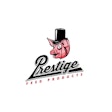
Don’t get ‘caught in a trap,’ during an FDA inspection of your feed mill, says Gary Huddleston of the American Feed Industry Association
Feed mill personnel need to know their company policies about sharing information and documentation before the U.S. Food and Drug Administration (FDA) comes to inspect their facility to avoid being “caught in a trap.”
That’s according to Gary Huddleston, director of feed manufacturing and regulatory affairs at the American Feed Industry Association (AFIA), who spoke March 16 at USPOULTRY’s Feed Mill Management Seminar in Nashville, Tennessee.
“Inspectors are going to ask a lot of times for things that they’re not entitled by the regulation to be able to see. It’s in their playbook, just expect it,” he said.
Feed mills should have policies about what they will and will not share with inspectors, and employees should be familiar with those policies.
“Most of you probably have company policies about what you can show and what you can’t show,” Huddleston said. “Be familiar with that; don’t just make a quick decision on what you think is best if you don’t know.”
He said it is OK to leave the room during and inspection and contact someone else at the company who knows the answer.
For example, he said, “there’s nothing in FSMA (the Food Safety Modernization Act) that says you have to have a supplier approval program unless you have a supply chain applied control, which is a type of preventive control.”
While there are certain plans that should be in place at a feed mill, they don’t necessarily need to be shared with FDA inspectors.
“You don’t even have to have a recall plan if you don’t have a preventive control. Now, for sure, you don’t want to be in business without a recall plan, but that’s not something you have to show,” he said. “It’s up to you. Your recall plan may not look like the FSMA prescriptive recall plan, but it might work perfectly for your plant.”
Inspectors may ask to take pictures and make copies of documents.
In that case, Huddleston said, “Know your company policy. And those of you that are in upper management: Make sure your plant managers know their company policy.”
That’s because showing documents that inspectors aren’t required to see by the regulation can end up as a warning or violation notice from FDA.
“When you start showing things that you’re not required to show, that’s when you start getting caught in that trap,” Huddleston said.
Some inspectors interpret FSMA regulations differently than feed mill employees, so there can be disagreement about what is required during an inspection.
“Be cooperative, but know the regulation,” Huddleston said.















